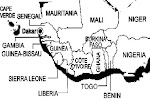Today VC4Africa starts the first African online venture capital matchmaking platform
>> Tuesday, 9 November 2010
Many investors are looking for businesses to get involved with but have difficulties finding promise. At the same time many businesses seek knowledge, capital and practical support. Without matchmaking their potential is never realized, hindering economic growth.
The VC4Africa community currently consists of 10.000 members worldwide. Business ideas have been registered through the website and entrepreneurs are seeing benefit. VC4Africa works to visualize the continent's business potential. VC4Africa has the ultimate goal to contribute to a paradigm shift focusing on transparency and entrepreneurship as a leading agents for development. VC4Africa wants to become the one-stop shop for African business development.
VC4Africa is a truly global initiative with the team working from Cameroon, Kenya, The Netherlands and the USA. Events (or what the community calls VC4Africa Meetups) have already been hosted in Kigali, Kampala, Nairobi, Johannesburg, Lagos, Tunis, San Francisco, Atlanta, Washington DC, New York, London and Amsterdam.
Due diligence is a limitation factor for investors interested in Africa. It costs too much time and capital to find genuine entrepreneurs with a solid business idea and plan. As a result, most existing funds seek large deals and better margins. MicroCredit is limited in its ability to support high growth businesses, this results in entrepreneurs with potential, struggling on the sideline.
VC4Africa solves these issues by applying innovative technology that leverages the power of the crowd. Anyone anywhere in the world is able to positively contribute to the development of African businesses with their own competencies and interests.
Open up! Now is the time. Let’s connect!
The VC4Africa community currently consists of 10.000 members worldwide. Business ideas have been registered through the website and entrepreneurs are seeing benefit. VC4Africa works to visualize the continent's business potential. VC4Africa has the ultimate goal to contribute to a paradigm shift focusing on transparency and entrepreneurship as a leading agents for development. VC4Africa wants to become the one-stop shop for African business development.
VC4Africa is a truly global initiative with the team working from Cameroon, Kenya, The Netherlands and the USA. Events (or what the community calls VC4Africa Meetups) have already been hosted in Kigali, Kampala, Nairobi, Johannesburg, Lagos, Tunis, San Francisco, Atlanta, Washington DC, New York, London and Amsterdam.
Due diligence is a limitation factor for investors interested in Africa. It costs too much time and capital to find genuine entrepreneurs with a solid business idea and plan. As a result, most existing funds seek large deals and better margins. MicroCredit is limited in its ability to support high growth businesses, this results in entrepreneurs with potential, struggling on the sideline.
VC4Africa solves these issues by applying innovative technology that leverages the power of the crowd. Anyone anywhere in the world is able to positively contribute to the development of African businesses with their own competencies and interests.
Open up! Now is the time. Let’s connect!
About VC4Africa
VC4Africa is an initiave by Ben White (Founder, Amsterdam), Bill Zimmerman (Founder ActivSpaces, Cameroon) and Bart Lacroix (Founder 1%Club, Amsterdam).
VC4Africa is an online community dedicated to connecting innovative, Africa-based entrepreneurs (and their ideas) with access to knowledge, markets and capital— i.e. mentors, business partners and investors. The focus is on entrepreneurs with innovative projects that apply new technology, new media, the web, mobile and green energy.
VC4Africa is an initiave by Ben White (Founder, Amsterdam), Bill Zimmerman (Founder ActivSpaces, Cameroon) and Bart Lacroix (Founder 1%Club, Amsterdam).
VC4Africa is an online community dedicated to connecting innovative, Africa-based entrepreneurs (and their ideas) with access to knowledge, markets and capital— i.e. mentors, business partners and investors. The focus is on entrepreneurs with innovative projects that apply new technology, new media, the web, mobile and green energy.
Contact Details
For more information contact: Ben White
Telephone number: +31 (0)6 29 227 200
E-mail: ben@vc4africa.com
Blog: http://www.ict4entrepreneurship.com/
Twitter: @VC4Africa
Visit Venture Capital for Africa at: http://www.vc4africa.com/?xg_source=msg_mes_network
Read more...
For more information contact: Ben White
Telephone number: +31 (0)6 29 227 200
E-mail: ben@vc4africa.com
Blog: http://www.ict4entrepreneurship.com/
Twitter: @VC4Africa
Visit Venture Capital for Africa at: http://www.vc4africa.com/?xg_source=msg_mes_network





